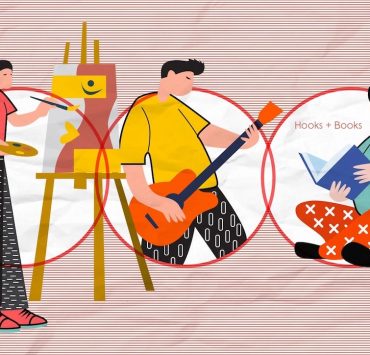Empathy, not pity

When my friend from Paris messaged me that she had bought us tickets to watch blind football at the Paralympics, I was not sure what to expect. I have a profound appreciation for football because my husband, a part-time coach, teaches street kids how to play, to help them secure athletic scholarships in the future. Blind football, however, was something I never knew existed.
This lack of mainstream awareness is why the Paralympics in Paris is such an important milestone for representation and inclusion. For the first time in history, all 22 Paralympic sports will have live broadcast coverage through an array of media partners. The first official Paralympic games took place in Italy in 1960 and have also been held every four years since then. It is hosted in the same city as the Olympics and takes place immediately after. The hope is that this year’s increased visibility will help spark more conversations about disability and lead to broader societal changes in how we address the needs of people with disabilities.
As soon as we entered the Eiffel Tower stadium last Thursday, I immediately felt the crowd’s excitement. For those wondering how blind football is played, there are five visually impaired players and one sighted goalkeeper in a team. All of them are required to wear eye patches and eye shades because some of the players may still have some residual eyesight. The game is played on a standard futsal pitch but outfitted with sideboards to stop the ball from going out.
The ball makes a noise when it moves, allowing the players to know where it is located at all times. Unlike in a typical football match where fans are constantly screaming their lungs out to cheer for their team, the audience of a blind football game must keep quiet while the ball is live.
The first game we caught was the semifinal match between France and Colombia. By the second half, the score was still 0-0, with several good attempts for a goal. There were so many moments when the crowd could not contain our collective gasp, so we would kindly remind each other to stay quiet and wait for the commentator to announce when we were allowed to cheer.
According to the World Health Organization, an estimated 1.3 billion people have a “significant” disability. By highlighting the capabilities, strength, and determination of Paralympic athletes, the Games beautifully demonstrate that disability does not have to be a barrier to participating fully in society when someone has access to the proper support system.
However, as the late disability rights advocate Stella Young said in her 2014 TED Talk, there is also a way we can objectify disabled people into something she called “inspiration porn.” For instance, some people might use the Games to be “inspired” and feel better about their lack of disability. Young shared, “I want to live in a world where we don’t have such low expectations of disabled people that we are congratulated for getting out of bed and remembering our own names in the morning.” Young asserted that instead of patronizing them, we should focus on making the world more accessible to them.
I remember how, just months ago, the Metropolitan Manila Development Authority got scrutinized for installing a wheelchair ramp so steep that it seemed more like a rollercoaster. This is tokenism—doing something for compliance or to make yourself feel good about “helping” rather than genuinely understanding the challenge and contributing an impactful solution.
In contrast, people with disabilities don’t want our pity and our hollow efforts; they need empathy-informed changes in society to ensure that their disability does not remain a disadvantage. For instance, a major criticism against France was that although the venues themselves were accessible, the public transport remained inaccessible to disabled people.
Four minutes left into the match, French team captain Frederic Villeroux scored a goal, sending the crowd to its feet. France beat Colombia 1-0, solidifying their place at the podium and the chance to compete for a gold medal. French fans sang “Les Champs-Élysées” to celebrate and their infectious enthusiasm felt like a very promising shift toward a more inclusive world.
One hiccup, though, of having the events in such a beautiful city is that it sometimes becomes a distraction. At 8:30 p.m., the sun started to set, giving the Eiffel Tower a beautiful backdrop of pink and lilac skies.
Instead of focusing on the semifinal match between Argentina and Brazil, many spectators began climbing the bleachers to take photos, momentarily forgetting that they were not supposed to make unnecessary noise. I guess even the most conscientious audiences are not immune to the allure of capturing the perfect social media moment.
Hopefully, those sunset posts will be used to raise awareness and advocate for a deeper, more empathetic understanding of disability rights.
—————–
eleanor@shetalksasia.com


















